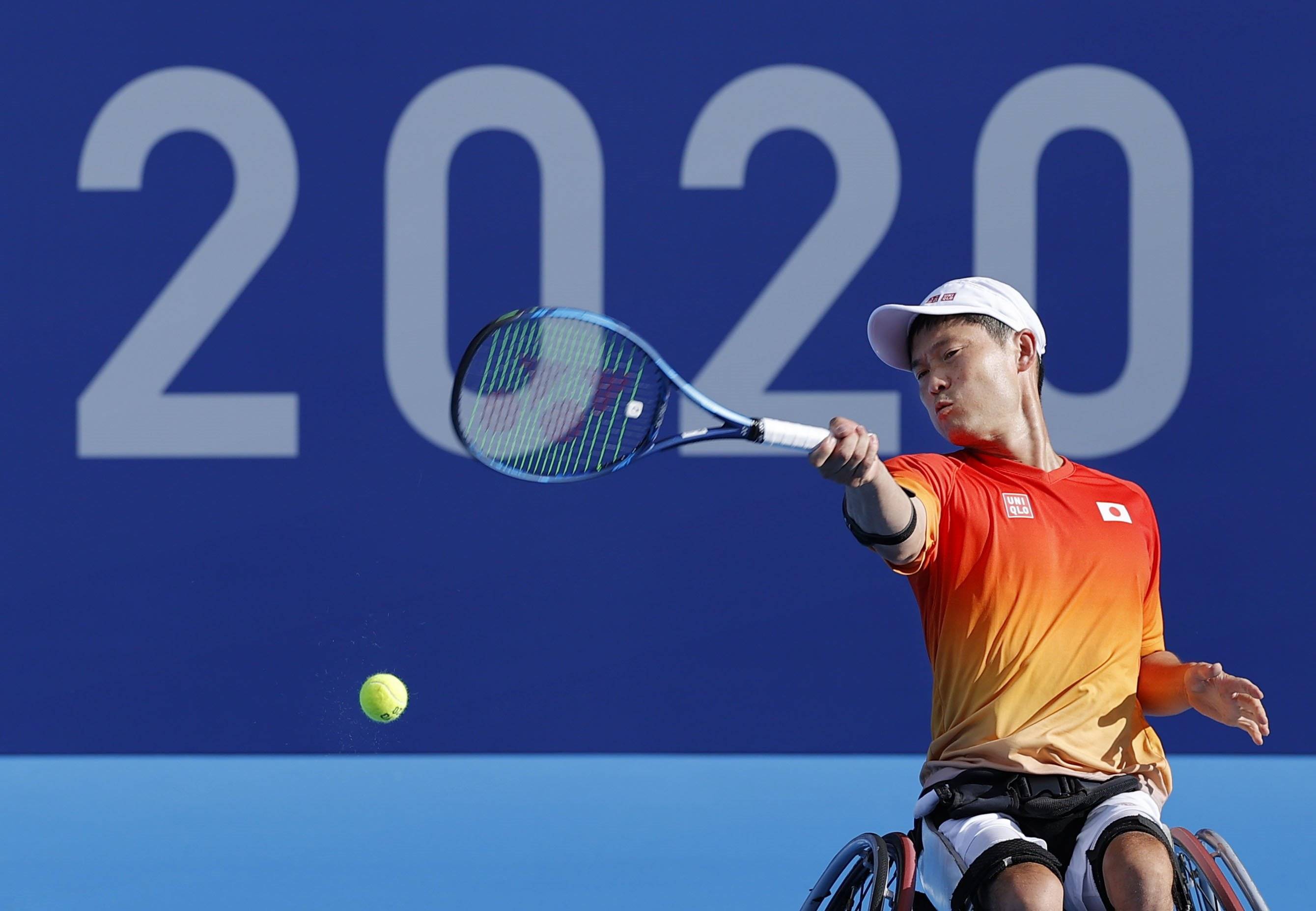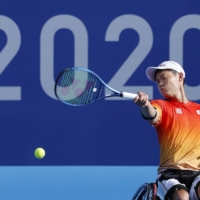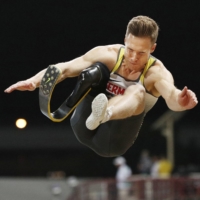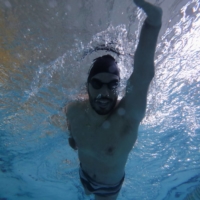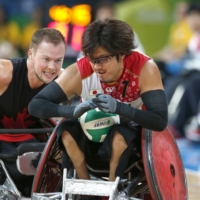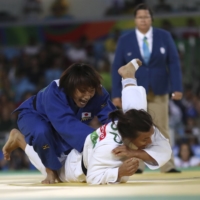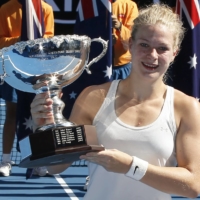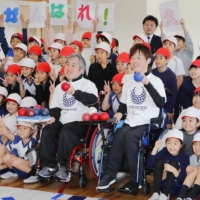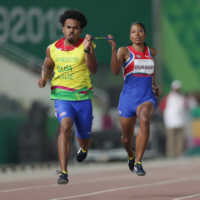The closing ceremony of the Tokyo Olympics did not bring the curtain down on the 2020 Tokyo Games.
The Olympics may be over, but the Paralympics are on deck and a new group of athletes from around the world is preparing to take center stage.
The Paralympics have been steadily growing in size and popularity over the past several editions, and the spotlight will be just as big during the Tokyo Games.
With that in mind, here are 10 athletes to keep an eye out for when the competition begins on Wednesday.
Shingo Kunieda
Wheelchair tennis (Japan)
Shingo Kunieda is a highly decorated wheelchair tennis player who is currently No. 1 in the world rankings.
Kunieda is a threat to win any tournament he enters, and that will also be the case during the Tokyo Paralympics.
The 37-year-old Chiba Prefecture native won Paralympic gold in singles in 2008 and 2012 and in doubles in 2004. He also has bronze medals from the doubles tournament in 2008 and 2016.
Kunieda is an admirer of Swiss tennis great Roger Federer and, like Federer in the able-bodied game, is considered by many to be the best ever at his sport.
He has won 24 Grand Slam singles titles during his career, with Wimbledon the only crown he has yet to claim. He's won the doubles title at all four Grand Slam events multiple times.
Kunieda is paralyzed in the lower half of his body as the result of a spinal tumor that was discovered when he was 9.
He is among Japan's most famous Paralympic athletes and has been named captain of the Japanese delegation for the Tokyo Games.
Kunieda was hampered by an elbow injury during the 2016 Games — he had missed a month before the Olympics due to the injury — and failed to medal in the singles competition. He'll try to heal that wound by winning his third Paralympic singles gold in Tokyo.
Daniel Dias
Swimming (Brazil)
When Daniel Dias retires after the Tokyo Paralympics — whether he wins a medal or not — he will do so as one of the greatest Paralympians of all time.
The Brazilian swimmer has won 14 Paralympic gold medals, including four at his home Games in Rio de Janeiro in 2016. Dias also has seven silver and three bronze medals. He won nine medals overall in Rio, taking his career haul to 24 and making him the most decorated male Paralympic swimmer ever.
That's all in addition to the 31 gold medals — in addition to seven silver and two bronzes — he has won at the world championships.
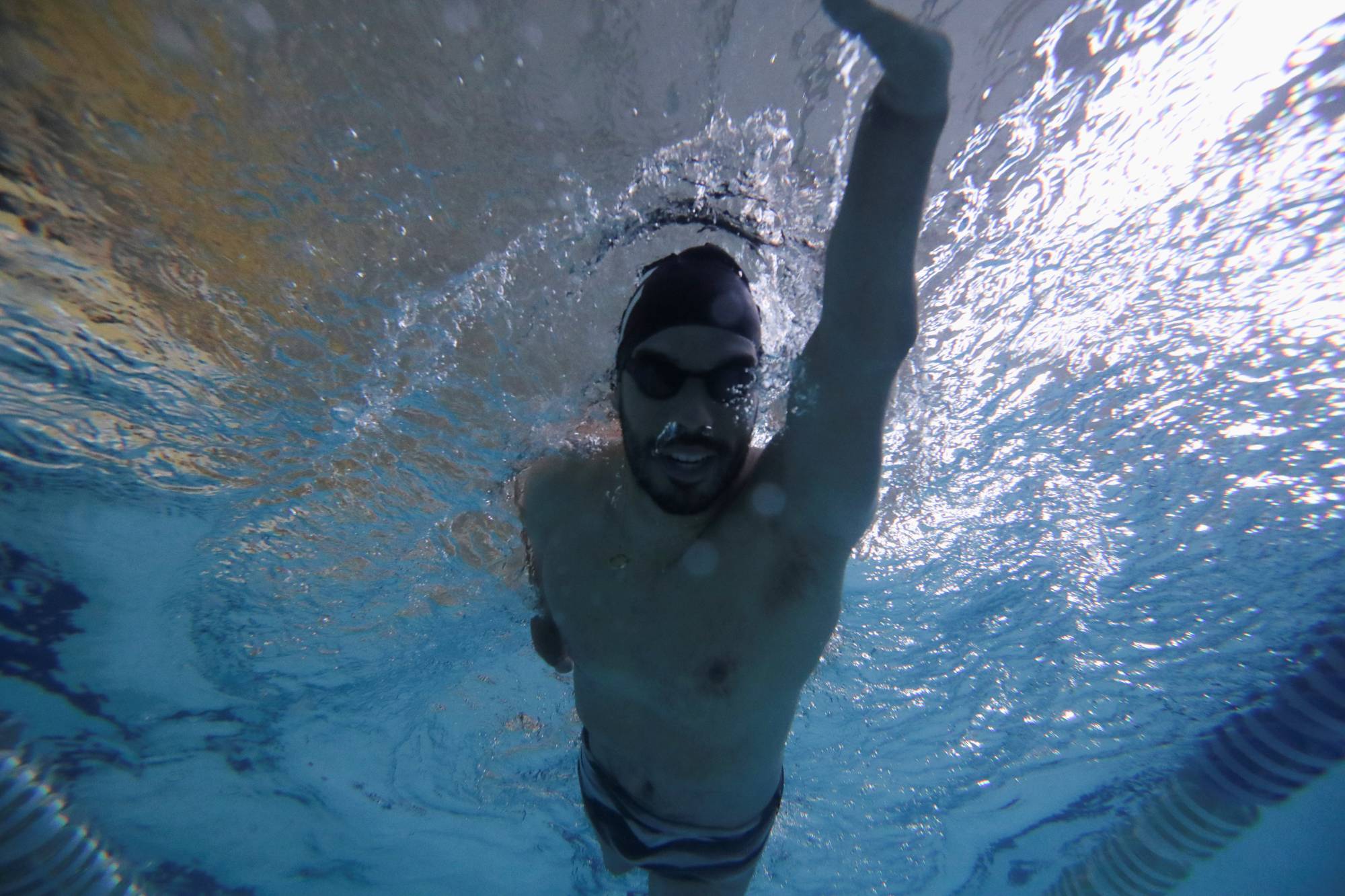
Dias was born with a right arm that stops at the elbow, a left arm that is shorter than normal and a partially formed left hand. His right leg stops at the knee.
He began swimming at age 16 and went on to rack up numerous awards, including being named Swimming World magazine's paraswimmer of the year five times.
He announced his impending retirement in a video posted to his website in January.
"I am extremely happy," he said in the video. "I do not want (it) to be a sad moment. Even if I say that I will stop, I am very happy because this decision was taken a long time ago. I was already establishing my goals and planning the announcement of my retirement. I am very grateful to God for swimming."
Takayuki Hirose
Boccia (Japan)
Takayuki Hirose is one of Japan's most well-known boccia players, with his powerful tosses and guttural shouts during games.
Hirose has won the national championship seven times to go along with his various other achievements in the sport.
He will be competing at his fourth consecutive Paralympic Games when the boccia competition begins. He was part of the Japan team that claimed silver in the BC2 team competition at the 2016 Rio Games, helping Japan earn its first Paralympic medal in the sport.
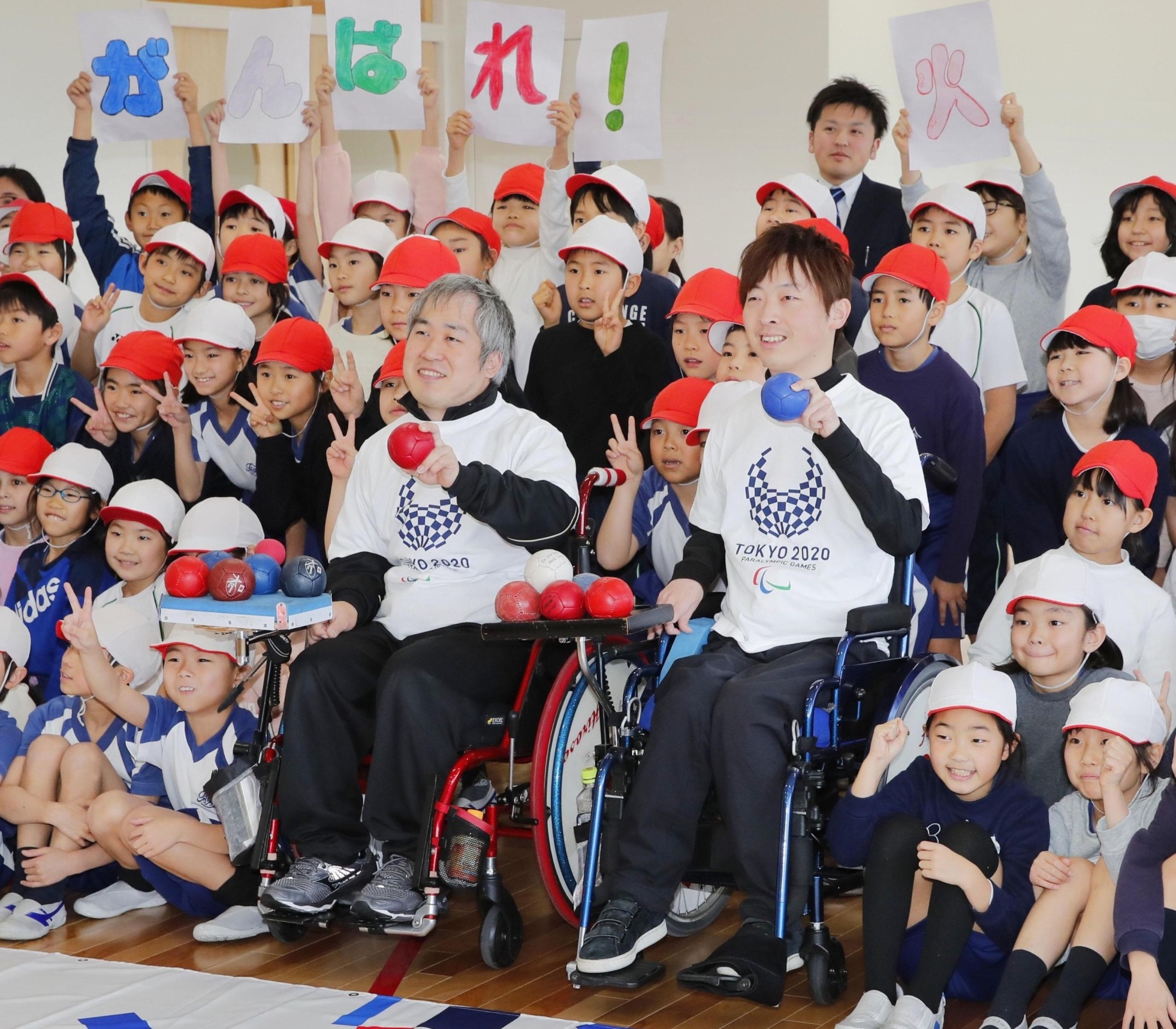
The team was captained by Hidetaka Sugimura, one of Hirose's main rivals and a player who is frequently in the upper echelons of the standings in domestic competitions.
The pair will try to take Japan one step higher on the podium during these Games in Tokyo.
Markus Rehm
Athletics (Germany)
When it comes to long jumping in para competition, Markus Rehm is the gold standard.
Rehm laid down a marker on the first day of the European Championships in Bydgoszcz, Poland, in June, rewriting the world record with a leap of 8.62 meters in the T64 competition. That distance would have given him the gold medal at the Tokyo Olympics.
The primary impairment for athletes in the T64 class are in the lower limbs. Rehm's right leg was amputated below the knee following a wakeboarding accident when he was 14.
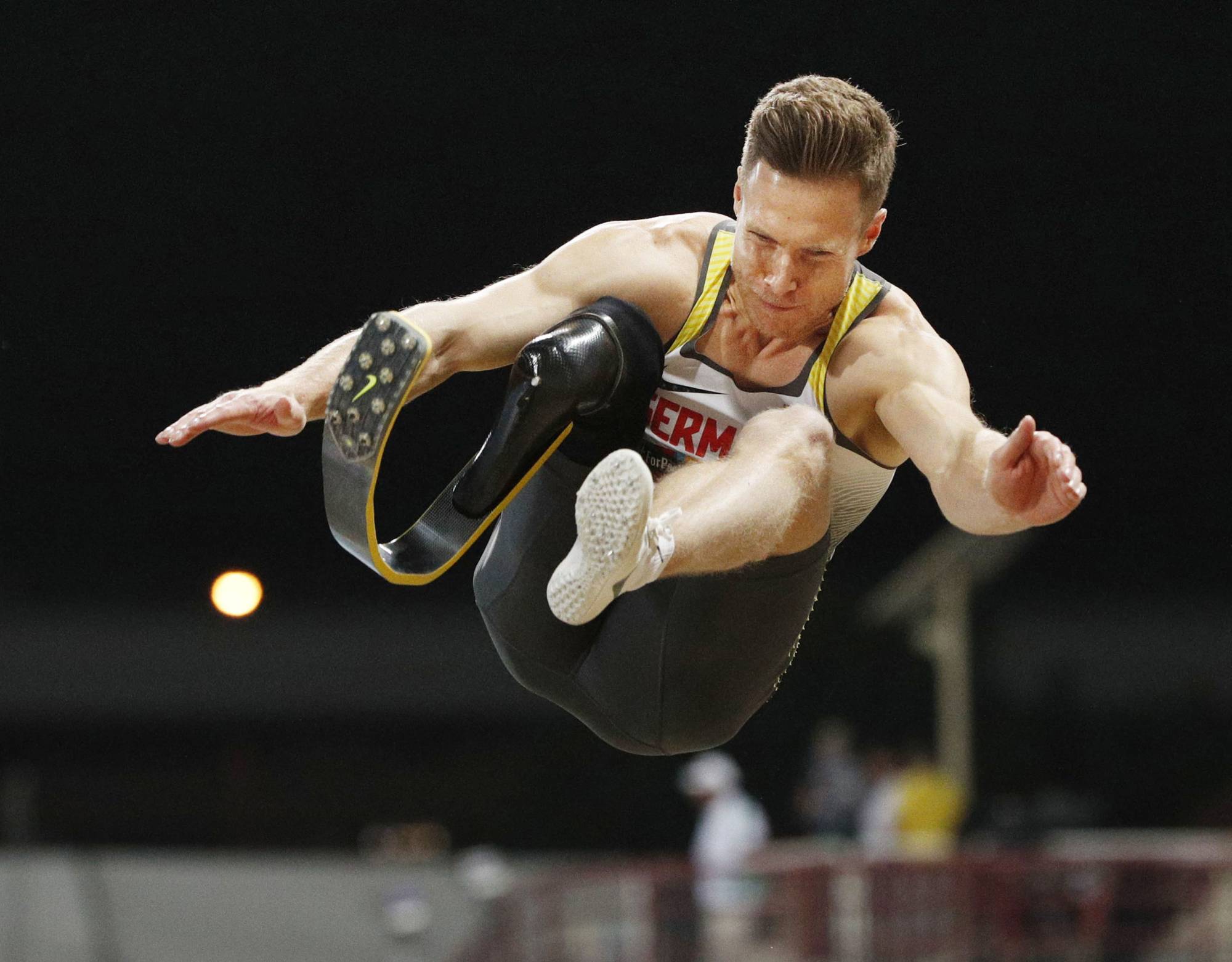
The German, called the Blade Jumper due to his bladed prosthesis, won gold at the World Para Athletics Championships in 2011, 2013, 2015, 2017 and 2019.
Rehm has also competed against able-bodied athletes. He attempted to qualify for the 2016 Olympics, but Germany failed to prove its case that Rehm's prosthesis did not provide an advantage.
Rehm is a three-time gold medalist in the Paralympics. In addition to Paralympic titles in the long jump at the 2012 London Games and the 2016 Rio Games, he also won a gold medal in the 4x100-meter relay in the T42-47 class (which covers athletes with single above-knee, below-knee and above- or below-elbow amputations) in Rio.
Junko Hirose
Judo (Japan)
Junko Hirose was Japan's lone visually impaired judoka during the 2016 Games in Rio de Janeiro and captured bronze to become the first Japanese woman to earn a medal in that classification.
Hirose's bronze was one of four medals Japan's judoka earned in Brazil five years ago.
The 30-year-old judoka claimed bronze at 57 kg and also in the team competition at the 2018 Asian Para Games in Jakarta in 2018. She will now be trying to get on the podium again at the hallowed Nippon Budokan during the Tokyo Paralympics.
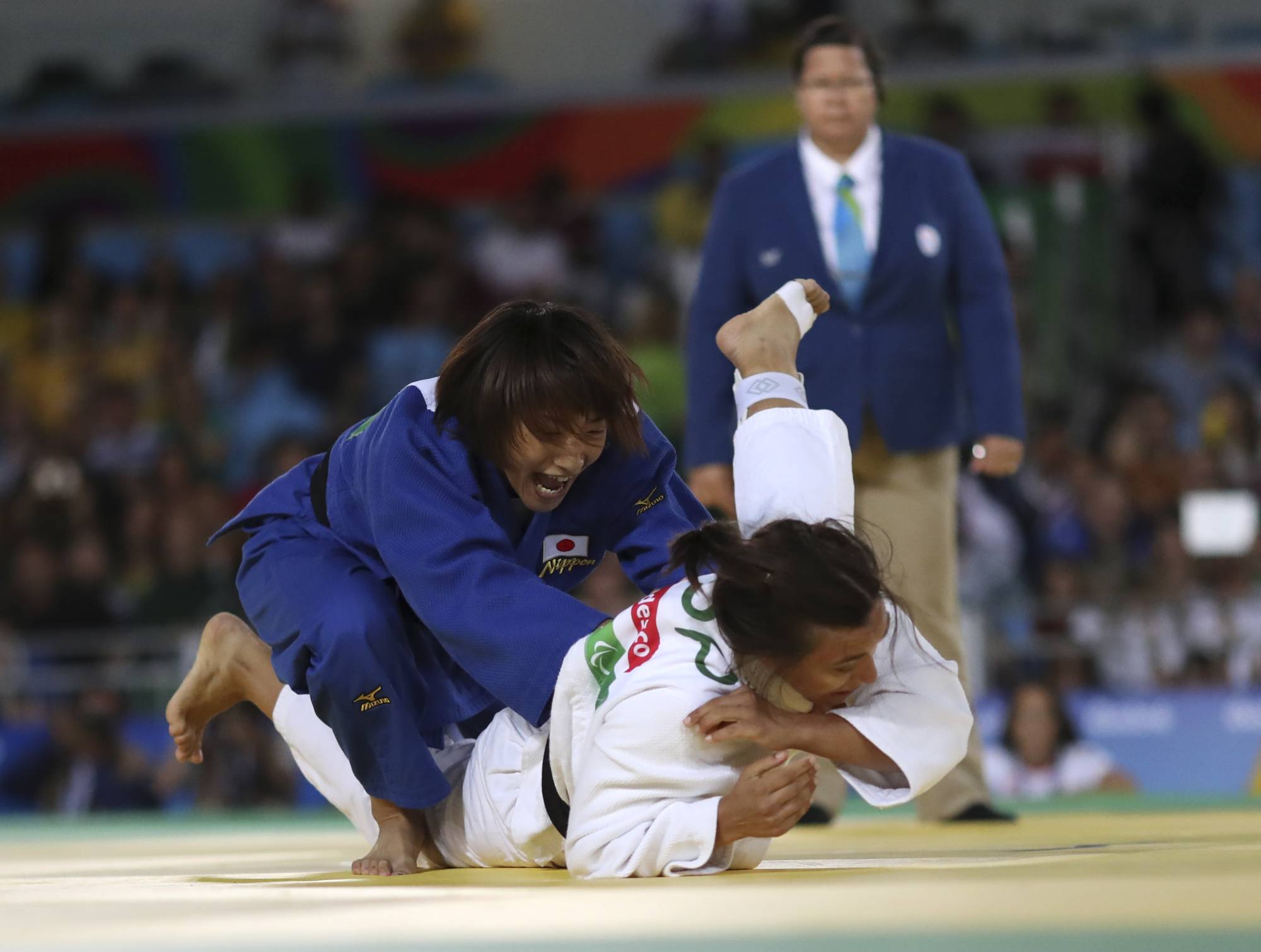
Hirose took up judo in elementary school and continued until an illness caused her to lose much of her sight in college. Eventually she moved on to parajudo competition.
The sport is now a family affair for her. Hirose’s husband, Haruka, also competed in the judo competition during the 2016 Paralympics, though he did not medal.
Omara Durand
Athletics (Cuba)
There are no guarantees in sports, but Omara Durand has been about as close as you can get for nearly a decade.
The Cuban sprinter won gold in the 100- and 400-meter sprints at the 2012 Paralympics to kick off a run of dominance at major competitions. Since leaving London with a pair of golds, she's finished first in the 100, 200 and 400 at the world championships in 2015, 2017 and 2019 and at the Rio Paralympics in 2016.
The "Queen of Speed" is coming to Tokyo looking to add to her already impressive collection.
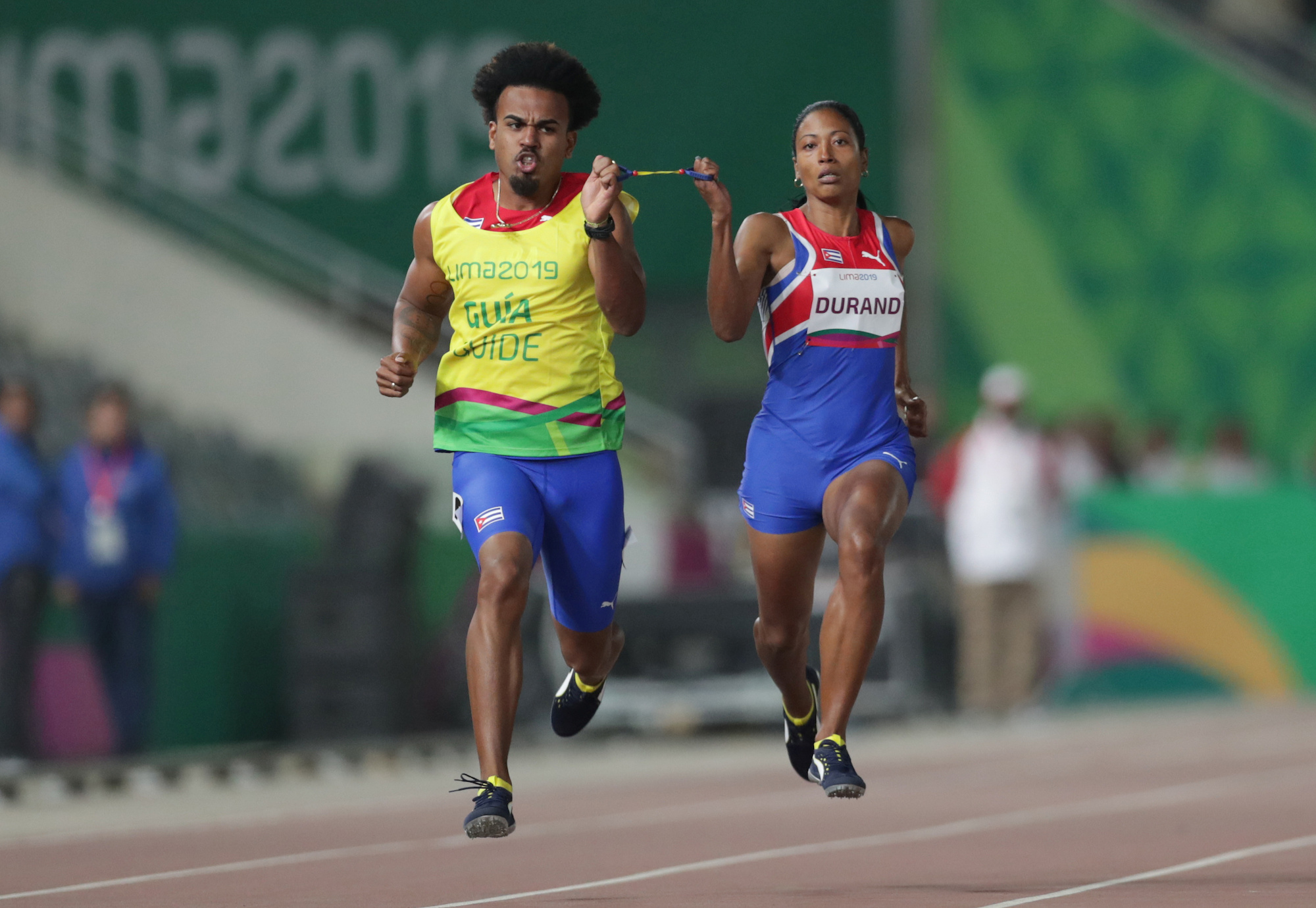
“It has been 10 years without losing and this is something amazing," Durand told Paralympic.org on Aug. 3. "It makes me prepare stronger every day to maintain my status. It is always exciting, and any competition gives nerves. What I do is relax, talk with my friends, listen to music.”
Durand competes in the T12 classification, which includes athletes with visual impairments. Durand's impairment is due to congenital cataracts
Mami Tani
Triathlon (Japan)
Mami Tani helped Japan win the right to host the 2020 Games as one of the speakers during the Tokyo bid presentation at the 125th IOC session in Buenos Aires in 2013. She delivered a powerful speech about how her family's life was impacted when the Great East Japan Earthquake, and the resulting tsunami, struck her hometown of Kesennuma, Miyagi Prefecture, on March 11, 2011.
"For six days, I did not know if my family was still alive," she said then.

Now eight years later — one year longer than expected — Tani will serve as one of the flagbearers for the Japanese team during the Tokyo Paralympic opening ceremony.
Tani, who lost her right leg due to osteosarcoma while in college, competed in the long jump in the 2004, 2008 and 2012 Games.
She will participate in the women's triathlon in the PTS4 category in Tokyo. The PTS4 classification is for athletes with moderate impairments. Amputees are able to use prosthesis during the biking and running segments of the triathlon.
Diede de Groot
Wheelchair tennis (Netherlands)
While world No. 2 Yui Kamiji will be competing at home, Diede de Groot, the world's top-ranked player may be entering the Games as the favorite.
De Groot, 24, holds a 22-15 advantage over the 27-year-old Kamiji in in their career meetings, though she only holds a 16-13 edge on hardcourts. The two have also played together, winning doubles titles at Wimbledon and the U.S. Open in 2018.
De Groot was born with a right leg that is shorter than her left and competes in the open classification, which is for athletes with leg impairments who have normal use of their arms.
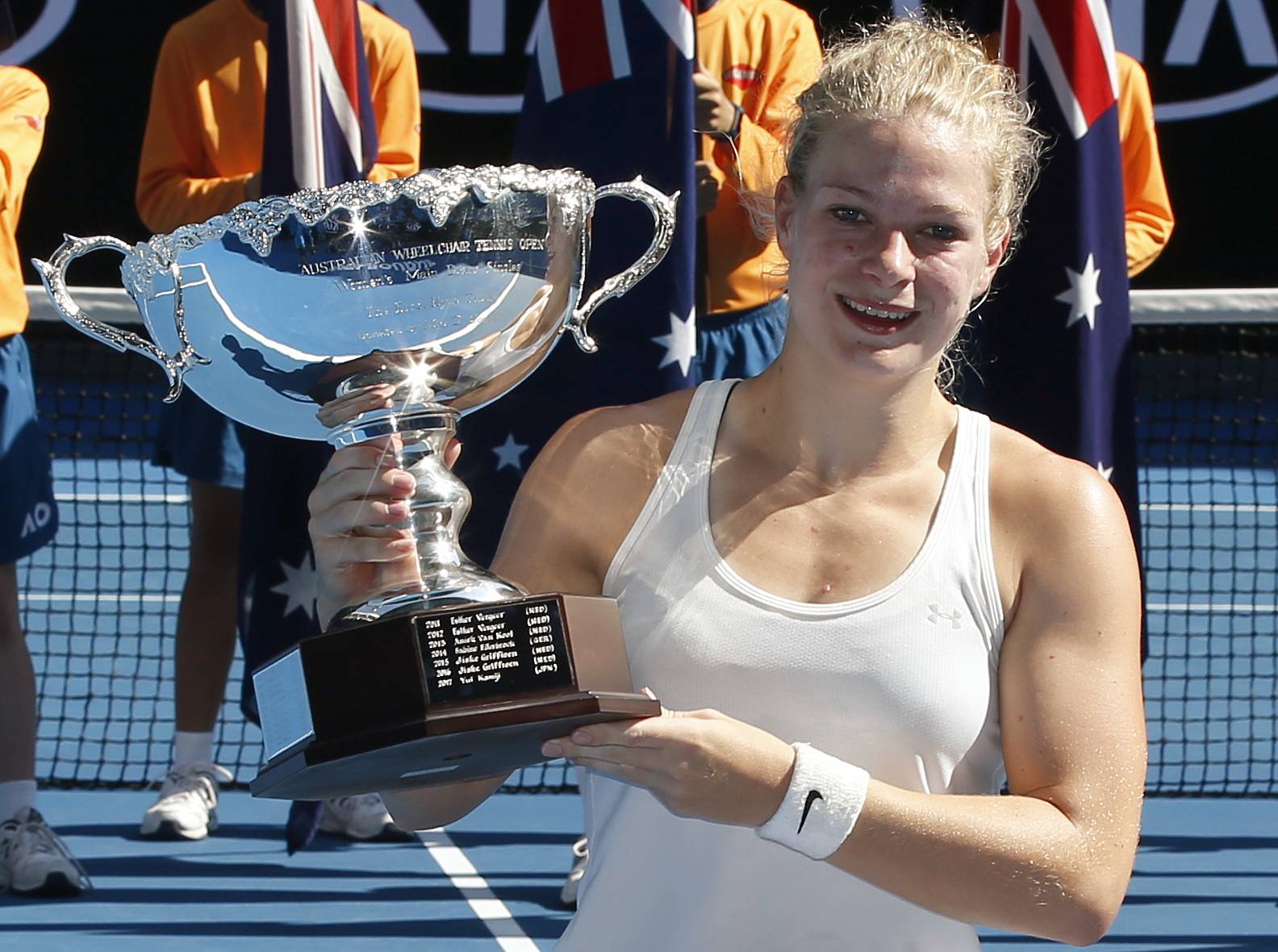
De Groot has been a force to be reckoned with in singles competition. She won Wimbledon and the U.S. Open in 2018 and followed up with victories at the Australian Open and French Open in 2019 to become the first woman to hold all four Grand Slam titles simultaneously.
She's also the current champion in all four events after winning the U.S. Open in 2020 and the Australian, French and Wimbledon this year, giving her momentum ahead of the Games.
She failed to medal in the singles competition at the 2016 Paralympics, but captured a silver medal in doubles.
Daisuke Ikezaki
Wheelchair rugby (Japan)
Daisuke Ikezaki's dream used to be winning a Paralympic medal. Since he's already done that, Japan's wheelchair rugby star can now set his sights on gold.
He may have a decent chance on home soil in Tokyo. The Japanese have a strong wheelchair rugby squad and enter the Games as the defending world champion — having won the most recent title in 2018.
Ikezaki is a 3.0 player for Japan, which puts him in the thick of the action and he could be one of Japan's main goal-scoring threats. His dynamism is not limited to scoring, as the 43-year-old is also skilled defensively.
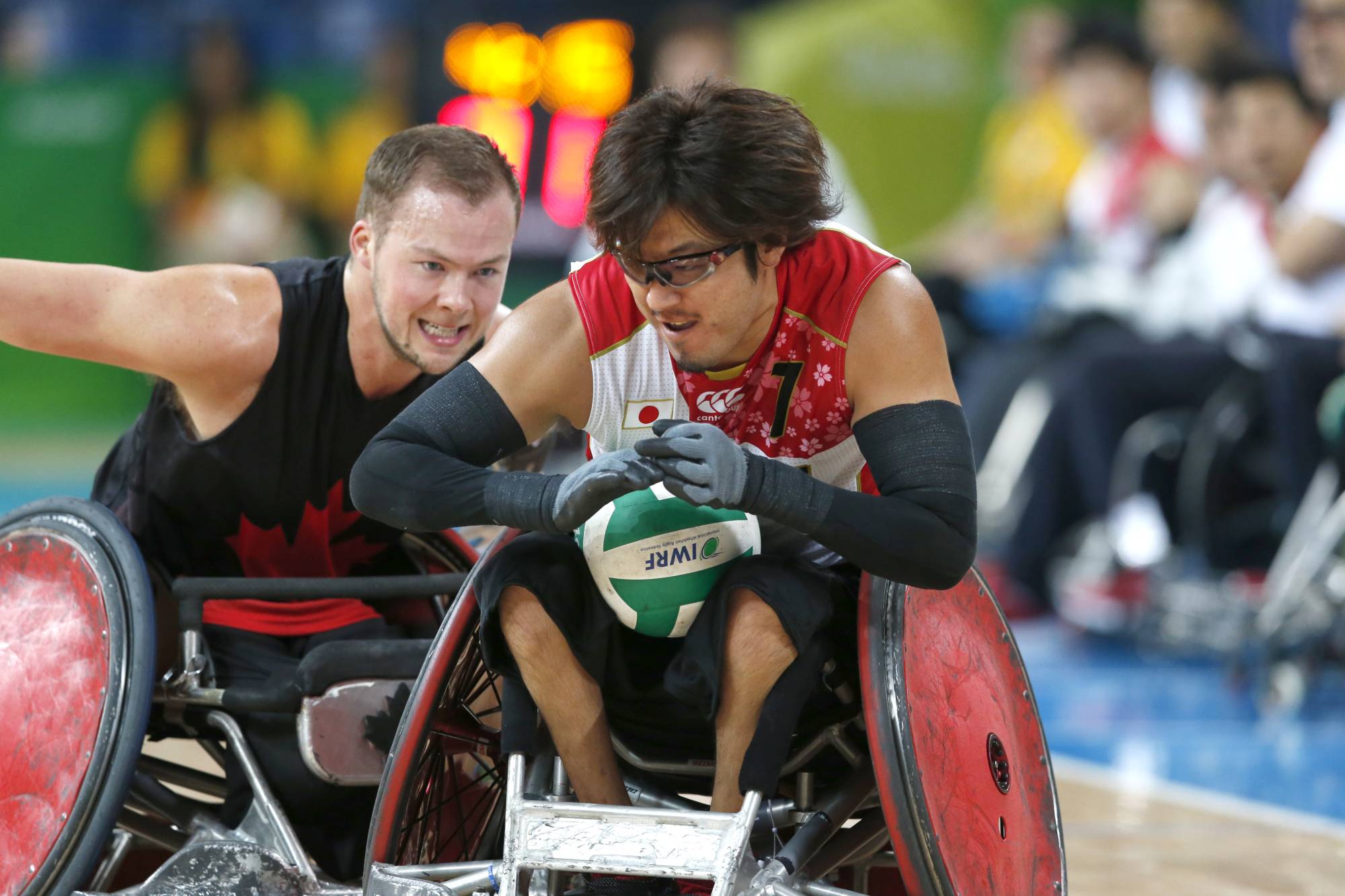
Already a notable player in the sport, the Tokyo Games could be the stage for him to become a breakout star if he can lead his country to a gold medal.
When Ikezaki was 6, he was diagnosed with Charcot Marie Tooth disease, an inherited disorder that mostly impacts the peripheral nerves — mainly the arms and legs.
Ikezaki began playing wheelchair rugby in 2008, after switching from wheelchair basketball in hopes of winning a Paralympic medal.
He made his debut for Japan in 2010 and realized his goal of winning a medal when helped the Japanese claim bronze at the 2016 Rio Games. That was also Japan's first Paralympic medal in the sport.
Lisa Gjessing
Taekwondo (Denmark)
Lisa Gjessing is the top-ranked athlete at the women's 58-kg class with 196 ranking points, two more than China's Li Yujie.
With taekwondo making its debut at the Tokyo Games, the 43-year-old Gjessing has a chance to take an already fruitful career to new heights.
Gjessing won three world championships at 58 kg from 2013 to 2015, and added a fourth in 2017. She finished third at the world championships in 2019.
https://www.instagram.com/p/CRMf3K8su_-/?utm_source=ig_web_copy_link
She competed in the able-bodied world championships in 2001 and 2003, and in Tokyo she competes in the K44 class, which is for athletes with limb deficiency. Gjessing was diagnosed with a form of bone cancer in 2007 — despite undergoing a number of treatments, her elbow was amputated in 2012.
A Paralympic medal is among the few prizes she has yet to add to her collection, a hole she will be looking to fill at these Games.



